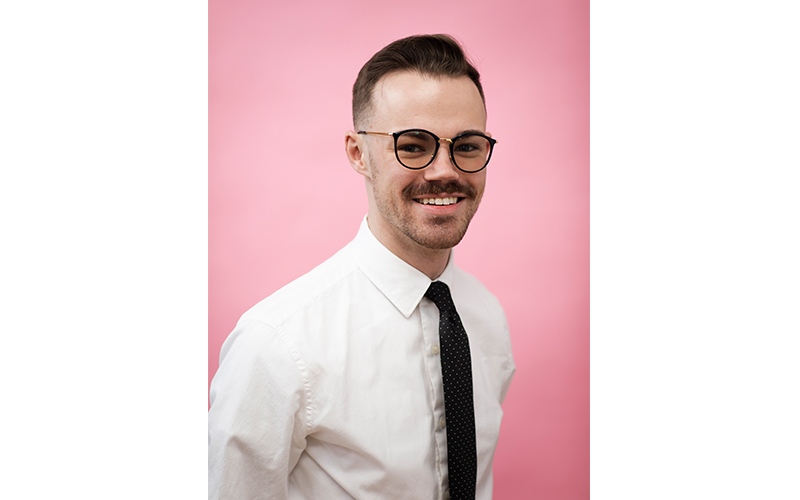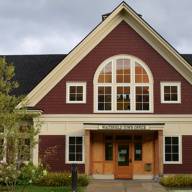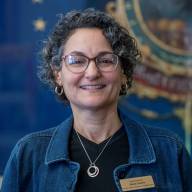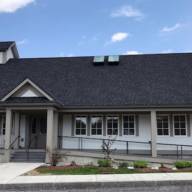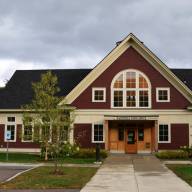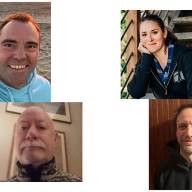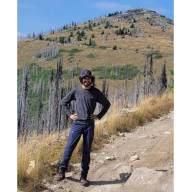Joe Magee, a 2013 graduate of Harwood Union High School, has served on the Burlington City Council since August 2021. Magee, who uses the he/they pronouns, studied business and political science at UVM, taking a year off to work on Bernie Sanders’ 2016 presidential campaign. They then went on to do event production and logistics for the White House while in Florida. After graduating from UVM, he got a job working on Bernie's Senate reelection campaign in 2018. “And that just kind of rolled right into his 2020 presidential campaign,” Magee said, where he traveled the country doing event production. Currently he is an event production consultant and is working on campaign organizing and coalition building around issue campaigns.
After being elected to the city council, “I kind of immediately was thrown into addressing the housing crisis and the numbers of folks experiencing homelessness around the state, having quite an acute crisis with folks having to sleep outside in Burlington. One of the bigger things that happened around then was the closure of the Sears Lane encampment in the south end, and so that really was the moment where I was like, ‘Okay, I have a place here, my voice belongs in the room.’
REALLY HEARTENING
“It's been really heartening to see success for the folks who are living in [the Elmwood Emergency Shelter] right now. A few folks have already found more permanent housing. So, really pioneering this model of housing first and getting folks access to services. It’s certainly not a permanent solution. But with a crisis so acute, I think we're modeling a temporary fix for folks that could work throughout the state.”
Magee has focused on harm reduction for drug users in his time on the council. “My dad struggled with opioid use disorder and alcoholism, and he passed away just before the start of my senior year at Harwood,” they said, “So, this has always been something that's been important to me, it's been very personal for me. Before I joined the council, I didn't really have a full understanding of what harm reduction was, and that there are people around the globe doing this work. [I] got to quickly learn about overdose prevention centers, and Narcan and fentanyl test strips, and a lot of the good work that's happening in the state already and work that's happening elsewhere that we haven't really brought to the U.S. yet. I'm learning that there are actually barriers in the United States to starting an overdose prevention center, even though we have evidence from over 200 sites around the world that showed that these are evidence-based approaches that can save lives. With a drug supply that's getting increasingly unpredictable, with fentanyl and xylazine, which is an animal tranquilizer, that doesn't respond to Naloxone, it’s complicating factors in terms of reversing an overdose. An overdose prevention center would be uniquely suited to provide support to folks that might bring in a supply that has xylazine in it. Another piece which we don't currently have in the state, but the Legislature is working on, would allow providers to get a machine that could test a sample to see what the potency of a particular substance is. So, if somebody came in, [said] ‘I thought I bought this,’ but they find out that it's got fentanyl and also maybe xylazine, it's just another step along the way of helping folks use more safely. What I'm looking at is, ‘How do we make policy that reduces harm for folks?’ It's a matter of giving them a space to use safely, and making sure that they stay alive.
AFFORDABILITY CRISIS
“Another thing that I worked on pretty early is addressing the affordability crisis in Burlington. We had a reappraisal the year running up to my first election, and it was the first one in 15 years. That caused a lot of folks, especially in my ward, to have their houses valued higher and their taxes. We're really looking at how we're communicating appraisals, and what that process is going to look like for folks. Also looking at the property tax system, how the many ways in which it doesn’t take into account someone's ability to pay. I work on a resolution to have the council's community neighborhood revitalization committee take that on and, making some progress there. A lot of these things require legislative changes and it looks like there is a bill moving through the Legislature to change the way the state does reappraisals to take the burden off of the municipality and have the state handle that. I think there is a more efficient way for us to do this that hasn't caused that sticker shock that so many folks faced in Burlington when we did the reappraisal.”
In terms of other work they’re doing, “We did pass a resolution unanimously on March 13, condemning transphobia. That has been something that's in the works for several months. The issues around transphobic stickers that have been around the city, that's been going on for years. For me, that was really about any accountability for areas where the city might have fallen short in the past and making a commitment to do better going forward. This started a monthlong campaign that will run through April, it started with Trans Day of Visibility on Friday. It was really focusing on making the safe welcoming place for all people that we believe ourselves to be.”
When asked whether growing up in The Valley and attending Harwood prepared him for the work he does now, he said, “I think it did. Growing up in rural Vermont, it can often sometimes feel like, there aren't that many opportunities. When I moved to Burlington, I never in my wildest dreams imagined that I'd be involved in politics or traveling to 40 states with a presidential candidate. [Harwood] was a great place to go, a lot of excellent mentors and role models there.”


